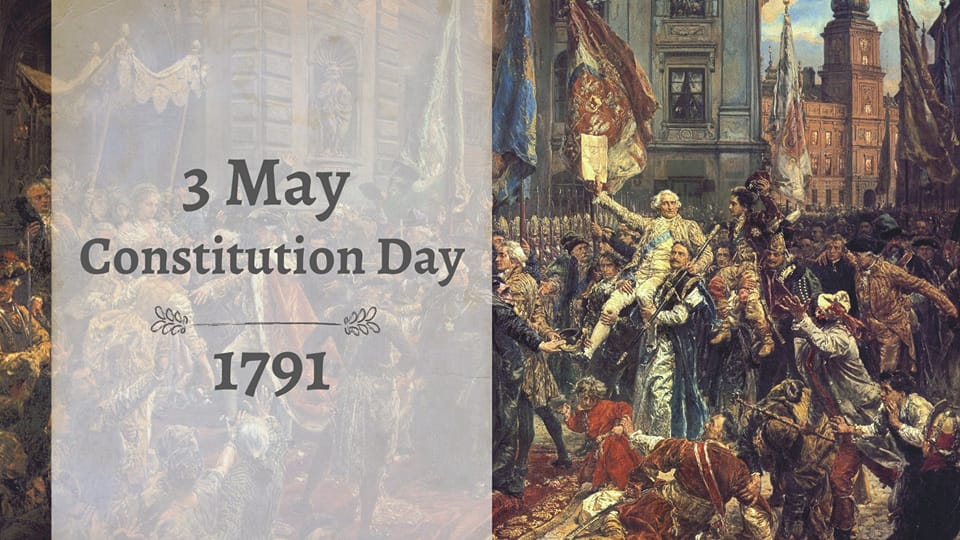On 3 May, we celebrate the adoption of the Constitution of the Polish-Lithuanian Commonwealth, i.e. National Day of 3 th of May, also known as Constitution Day and remains one of the foundations of the polish republican tradition. It is a reference point for traditions and aspirations for independence in the years of separation, communist occupation and enslavement. Its importance to polish thinking about freedom proved to be timeless: it was a source of pride and a source of self-esteem reinforcement for every generation that reminded Europe of the poles' right to freedom – postulating the return of Poland to the political map of the continent and full independence.
Constitution of 3 th of May 1791, the first written fundamental law in Europe and the second in the world – after the Constitution of the United States of America turned the state into a constitutional monarchy. He reformed the system, eliminating the so-called cardinal rights imposed and guaranteed by foreign powers. In 11 chapters, regulated the problems of the ruling religion, the status of nobility and landed gentry, townsfolk, peasants, legislative powers, executive and judicial, education of royal children and military matters. He introduced the principle of separation of powers. The expression of the sovereign will of the nation was to be a bicameral Sejm. The hereditary ruler presided over the ministerial body, which was the most important organ of the executive power (Guard of the Law). The judiciary was to be separated from the executive and legislative branches. Despite maintaining the federal character of the Polish-Lithuanian state, a number of state institutions were centralized.
Although this document was signed ago 232 years, he still carries many universal messages and is a model of consensus between warring political parties. Its creators showed imagination and long-term thinking and action for the good of the country. The constitution was a powerful impulse that stimulated social awareness of the need for changes in the functioning of the state, it also gave hope for reforms. The constitution was a civilizational achievement of the citizens of the Polish-Lithuanian Commonwealth, an important chapter in the common history of Poland and Lithuania. It also became a model for other countries.
Poland and Poles around the world celebrate the Constitution as a national holiday.
HAPPY BIRTHDAY TO POLAND AND TO ALL POLES!

